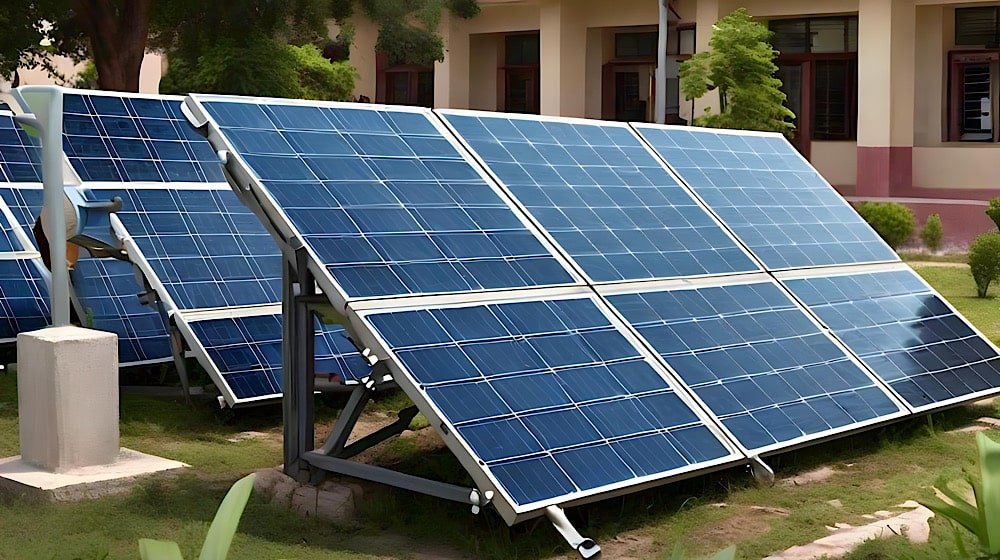Switching to solar power for running a 1.5-ton air conditioner (AC) is an eco-friendly and cost-effective solution. However, determining how many solar plates (panels) are required for this setup involves several key factors, including power consumption, solar panel capacity, and system efficiency. Let’s break it down step by step to help you make an informed decision.
Understanding Power Requirements of a 1.5 Ton AC
A 1.5-ton AC typically consumes around 1.5 to 2 kW of power per hour. This figure can vary depending on:
- Energy Efficiency Rating (EER): Higher EER-rated units consume less power.
- Usage Duration: The total power consumption depends on how many hours the AC runs daily.
- Inverter or Non-Inverter Technology: Inverter ACs are more energy-efficient compared to non-inverter models.
For this example, let’s assume the AC runs for 8 hours a day and consumes an average of 2 kW/hour:
- Daily power consumption = 2 kW × 8 hours = 16 kWh/day.
Choosing the Right Solar Panels
1. Solar Panel Capacity
The capacity of a solar panel is measured in watts (W). Common panels come in capacities such as 250W, 300W, or 400W. For simplicity, let’s consider 400W panels, as they are more efficient and require less space.
2. Sunlight Availability
The efficiency of your solar panels depends on the number of peak sunlight hours in your location. Most areas receive about 4-6 hours of peak sunlight daily. For this calculation, we will assume 5 peak sunlight hours:
- Power generated by one 400W panel = 400W × 5 hours = 2 kWh/day.
3. Number of Panels Required
To generate the required 16 kWh/day:
- Total panels needed = Total daily power consumption ÷ Power generated per panel
- Total panels needed = 16 kWh/day ÷ 2 kWh/day = 8 panels.
Thus, you would need 8 solar panels of 400W capacity to run a 1.5-ton AC for 8 hours daily.
Additional Components for Your Solar Setup
Switching to solar energy involves more than just panels. Here are the essential components:
1. Inverter
An inverter converts the DC power generated by solar panels into AC power that your air conditioner can use. Ensure you choose an inverter with a capacity slightly higher than your AC’s power requirement, such as a 3 kVA inverter for a 1.5-ton AC.
2. Battery Storage (Optional)
If you want your AC to run at night or during cloudy weather, you’ll need batteries to store excess energy. A 10-15 kWh battery backup is typically sufficient for this setup.
3. Charge Controller
A charge controller regulates the voltage and current from the solar panels to prevent overcharging of the batteries and ensure system longevity.
Factors Influencing Solar Panel Requirements
- Energy Efficiency of the AC: Upgrading to a high-efficiency inverter AC can reduce power consumption, potentially lowering the number of panels required.
- Local Climate Conditions: Areas with more sunlight will require fewer panels compared to regions with frequent cloudy weather.
- System Losses: Account for a 10-15% efficiency loss in the overall system due to wiring, inverter efficiency, and other factors.
Cost Estimate for the Solar Setup
Here is a rough cost breakdown for a solar setup to run a 1.5-ton AC:
| Component | Quantity | Approx. Cost (USD) |
|---|---|---|
| 400W Solar Panels | 8 | $2,400 ($300 each) |
| Inverter | 1 | $800 |
| Battery Storage | 1 | $1,500 |
| Charge Controller | 1 | $200 |
| Installation | – | $500-$1,000 |
Total Estimated Cost: $5,400 – $6,000
Benefits of Running a 1.5 Ton AC on Solar Power
- Reduced Electricity Bills: Solar energy can significantly lower your monthly utility expenses.
- Eco-Friendly Solution: Solar power reduces your carbon footprint.
- Energy Independence: Generate your own electricity and rely less on the grid.
- Long-Term Savings: Despite the initial investment, solar systems pay for themselves over time through energy savings.
Conclusion
To run a 1.5-ton AC for 8 hours daily, you would need approximately 8 solar panels of 400W capacity, along with supporting components like an inverter and optional battery storage. The exact number of panels may vary based on your location, AC efficiency, and daily usage patterns.
Investing in solar power is a smart choice for both your wallet and the environment. Consult a professional solar installer to design a customized system that suits your specific needs.



